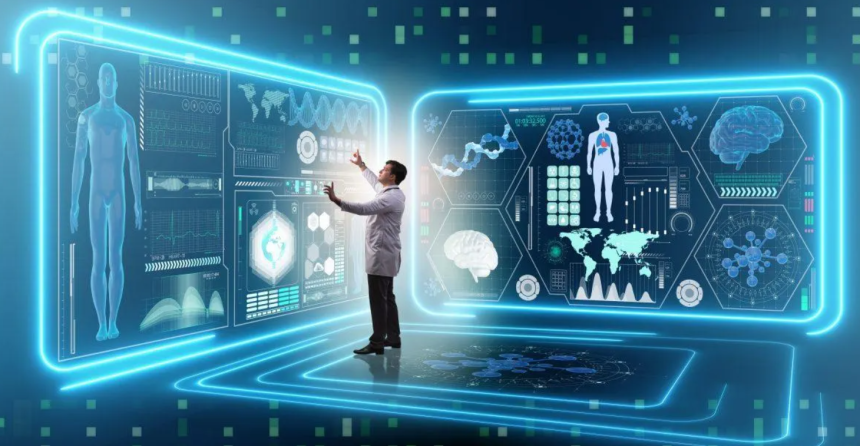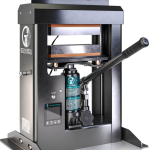Integrating Artificial Intelligence (AI) in the medical field has brought about a paradigm shift in healthcare, revolutionizing patient care, diagnostics, and treatment outcomes. AI’s ability to analyze vast amounts of data and recognize patterns with unmatched accuracy has empowered medical professionals to make informed decisions, leading to improved patient outcomes and optimized healthcare processes. In this article, we explore the various applications of AI in the medical field and how it is reshaping the landscape of modern healthcare.
- AI-driven Diagnostics: Enhancing Accuracy and Speed
AI-powered diagnostic tools have proven instrumental in detecting and diagnosing diseases with exceptional precision. Machine learning algorithms can analyze medical images, such as X-rays, MRIs, and CT scans, spotting even the subtlest abnormalities that human eyes might miss. This technology expedites the diagnostic process, enabling early detection and intervention, thereby increasing the chances of successful treatment.
- Personalized Treatment Plans: Tailoring Healthcare to Individuals
One of AI’s most promising applications in healthcare lies in developing personalized treatment plans for patients. By analyzing an individual’s medical history, genetic makeup, lifestyle, and other data points, AI algorithms can recommend targeted therapies and medications that maximize effectiveness while minimizing side effects. Personalized medicine is transforming patient care, ensuring tailored treatments for better outcomes.
- Predictive Analytics: Proactive Healthcare Management
AI’s predictive capabilities are a game-changer in healthcare management. By analyzing patient data, historical records, and risk factors, AI algorithms can forecast the likelihood of potential health issues. This foresight allows healthcare providers to take proactive measures to prevent diseases, reduce hospital readmissions, and manage chronic conditions effectively.
- AI-powered Virtual Assistants: Improving Patient Interaction
AI-driven virtual assistants have redefined patient engagement. These intelligent chatbots can interact with patients, answer queries, schedule appointments, and provide information on medications and treatments. By streamlining administrative tasks and offering prompt support, AI-powered virtual assistants enhance patient satisfaction and free up medical staff to focus on critical care.
- Drug Discovery and Development: Accelerating Innovations
AI is crucial in the pharmaceutical industry by expediting drug discovery and development processes. AI algorithms can analyze vast databases, identify potential drug candidates, and predict their efficacy, reducing the time and cost of bringing new medications to market. This acceleration in innovation has the potential to transform patient care and address unmet medical needs.
- Precision Surgery and Robotics: Advancing Surgical Techniques
AI-powered robotic systems enable precision surgery, surpassing human capabilities in specific procedures. Surgeons can control robotic arms with high precision, minimizing invasiveness and recovery times for patients. Robotics in surgery ensures fewer complications, shorter hospital stays, and faster post-operative recovery, further strengthening the importance of AI in the medical field.
- Healthcare Data Security: Safeguarding Patient Information
As healthcare becomes increasingly digitized, data security becomes a paramount concern. AI-driven cybersecurity solutions can analyze data traffic, detect anomalies, and prevent potential cyber threats, safeguarding sensitive patient information and preserving the integrity of medical records.
- AI-driven Research: Advancing Medical Knowledge
AI is revolutionizing medical research by analyzing vast scientific literature and clinical data. AI algorithms can identify patterns, predict outcomes, and discover previously unseen correlations, expediting study and contributing to the collective medical knowledge base.
- Remote Patient Monitoring: Empowering Telemedicine
AI-driven remote patient monitoring enables continuous tracking of patients’ vital signs and health parameters from the comfort of their homes. Physicians can remotely assess patients’ conditions, make data-driven decisions, and intervene proactively when necessary, fostering the growth of telemedicine and improving access to healthcare.
- Ethical Considerations and Human Oversight:
While AI’s potential in healthcare is immense, ethical considerations and human oversight are paramount. Ensuring transparency in AI algorithms, maintaining patient privacy, and balancing AI-driven decisions with human judgment are critical to building trust and guaranteeing responsible AI adoption in the medical field.
Integrating AI in the medical field is reshaping healthcare as we know it. From accurate diagnostics and personalized treatment plans to predictive analytics and drug discovery, AI is optimizing patient care, revolutionizing research, and driving innovation. As the healthcare industry embraces AI technologies, we await a future of improved patient outcomes, proactive disease management, and more efficient healthcare processes. By harnessing the transformative power of AI, medical professionals can continue to advance patient care and usher in a new era of healthcare excellence.















